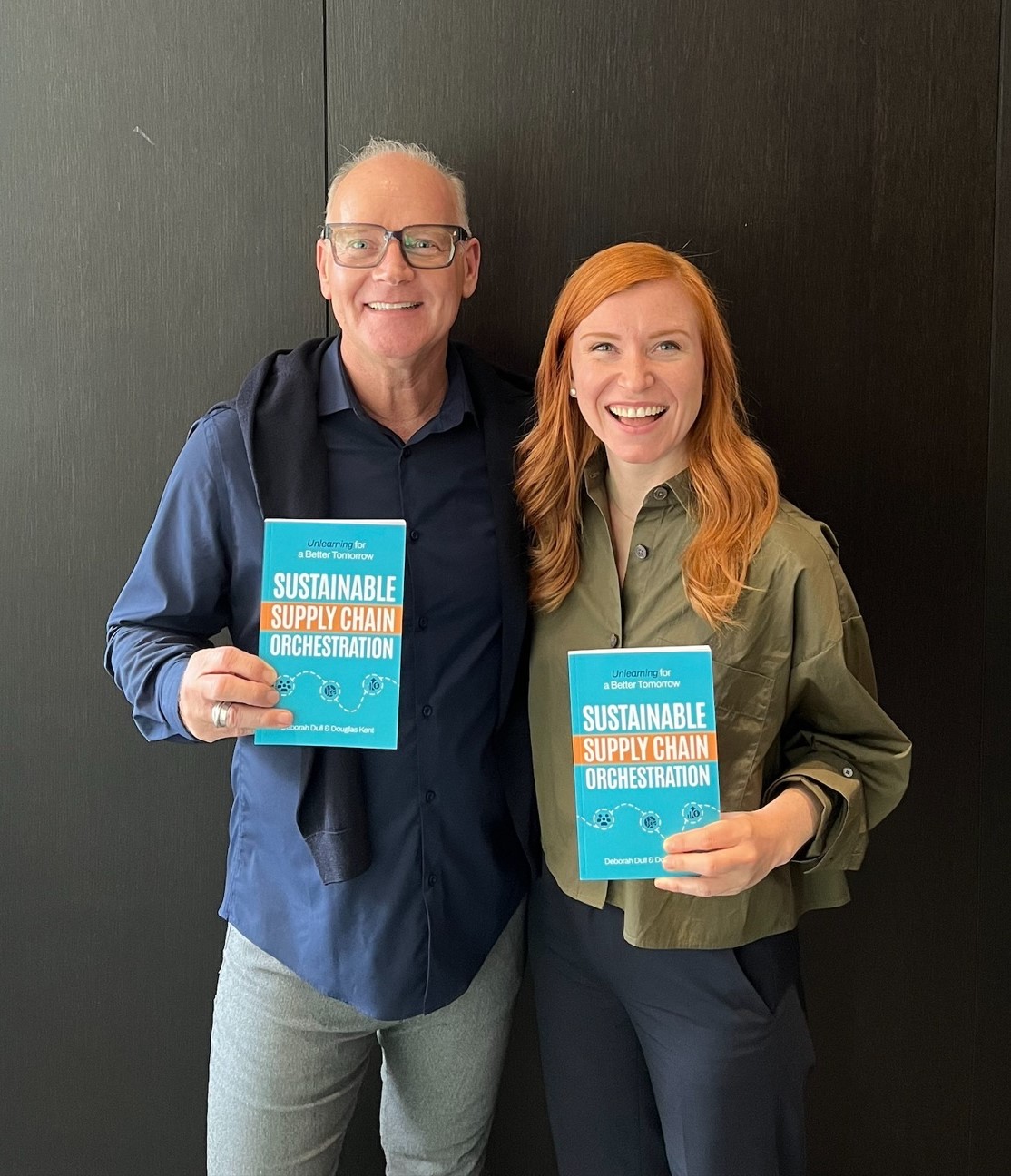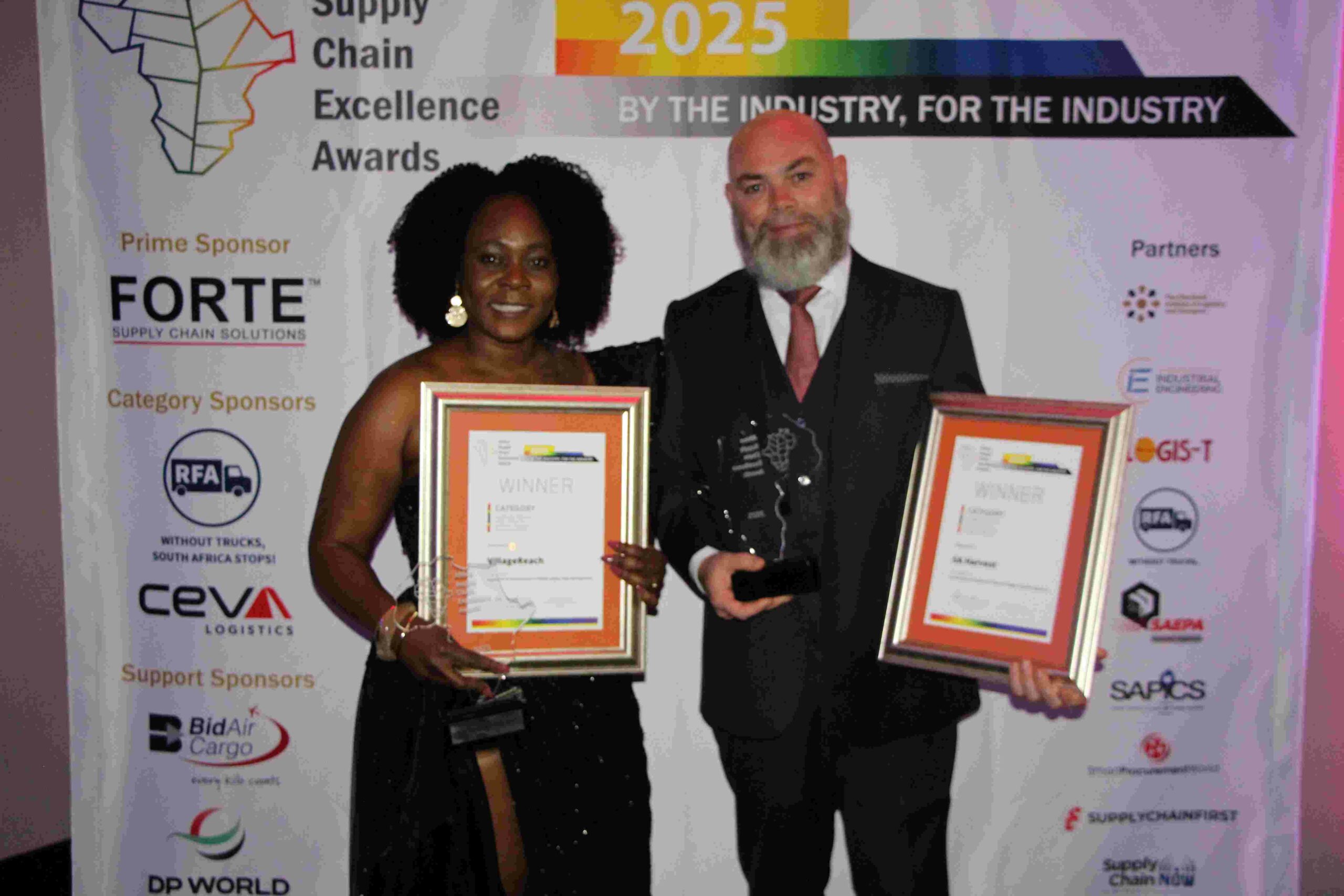2024 SAPICS CONFERENCE –SUPPLY CHAIN COMMUNITY URGED TO “UNLEARN” IN ORDER TO FIGHT CLIMATE CHANGE

Experts stress that to fight climate change, it is critical to transform supply chains as they produce around 60% of all carbon emissions globally. But while greener supply chains are a growing imperative, the supply chain community is “unengaged” on the topic, according to international author and renowned circular supply chain specialist Deborah Dull.
United States-based Dull was speaking at the 2024 SAPICS Conference in Cape Town, Africa’s leading event annual for the supply chain profession. She and supply chain expert Douglas Kent shared the stage to launch their new book at the recent conference. They urged the 750 supply chain professionals in attendance to consider their impact on the environment and foster more sustainable practices in their organisations. “When it comes to making a positive impact on the world, every role in the supply chain has the potential to contribute,” Dull said.
The newly released book, “Sustainable Supply Chain Orchestration” provides a comprehensive framework for individuals and businesses to adopt more sustainable practices. Dull and Kent introduce readers to their “UNLEARN” model, which encourages companies to rethink traditional supply chain processes and embrace innovative strategies that align with sustainability goals. To UNLEARN, seven key steps are needed, according to Dull and Kent, who outline these in their book.
Unify around the why
It starts with unifying around the why. “Our supply chains have been designed to drive cost efficiencies, optimise delivery times, and ensure product quality. However, this focus has contributed to unsustainable practices that compromise the well-being of our planet and society. It’s time to unlearn this mindset and redefine the motivation behind our supply chains. We can no longer tolerate excessive packaging, inefficient logistics which increase greenhouse gas emissions, single-use plastics, exploitive labour practices, improper waste disposal or chemical runoff,” the authors stress.
Navigate the sustainability universe
Navigating the sustainability universe is the next step, because up until now, supply chain leaders have navigated a landscape focused on metrics like cost, speed, and service levels, assert Dull and Kent. “The path to truly sustainable supply chains requires unlearning this narrow focus and embarking on a journey of exploration and continuous learning.”
Liberate yourself from the status quo
Liberating oneself from the status quo is the third step in the duo’s UNLEARN model for sustainable supply chains. “Established beliefs and outdated practices can be major barriers to implementing sustainable supply chain strategies. Before embarking on transformative change, organisations must first overcome pervasive myths that undermine the business case for environmental and social responsibility,” they assert.
Evolve
The necessity to evolve follows. “By evolving supply chain strategies and operations through a sustainability lens, organisations can mitigate negative externalities while unlocking new value-creation opportunities,” Dull and Kent contend.
Amplify the story
Amplifying the story is the next step, and they note that the power of storytelling cannot be overstated. This chapter of their book explores how the strategic use of storytelling can be a transformative force in supply chain orchestration.
Ramp up the learnings by collaborating
Ramping up learnings and change is the penultimate stage of the journey toward a more sustainable supply chain. “While individual companies can certainly make strides in improving the sustainability of their own operations, the most impactful and scalable solutions often emerge through collaborative efforts with industry peers and competitors,” according to the authors.
Nurture the new approach
The final step in their UNLEARN model is to nurture the new approach. “It may be that your supply chain, like many others, has sustainability as a box to be checked – implementing initiatives through one-off training programmes or top-down mandates. Unsurprisingly, this ‘set it and forget it’ approach just doesn’t have staying power. Supply chain leaders must unlearn this transactional way of driving change and instead enshrine sustainability as a living, breathing ethos that permeates every aspect of the organisation’s culture and operations,” Dull and Kent told SAPICS Conference attendees. “Try it out: start small, fail fast and adapt,” they advised.
This year’s 46th SAPICS Conference was hosted by The Professional Body for Supply Chain Management (SAPICS) in association with Southern African Association of Freight Forwarders (SAAFF). It saw supply chain managers from 30 countries across Africa and around the world come together to explore this increasingly important profession’s current challenges and opportunities, to learn and share knowledge. Commenting on the launch of Sustainable Supply Chain Orchestration in South Africa, SAPICS president MJ Schoemaker says that it reflects SAPICS’s commitment to educating supply chain professionals in South Africa and across the continent and empowering them with the latest skills and knowledge. “As SAPICS delegates go back and navigate the complexities of sustainability in their own organisations and regions, the insights from Dull and Kent’s work will be invaluable in shaping more resilient and responsible supply chains,” she states.
ABOUT SAPICS: http://www.sapics.org
Since 1966, SAPICS has worked to elevate, educate and empower the community of supply chain professionals in South Africa and across the continent. This is done via membership, events, the annual conference and education courses and workshops through Authorised Education Providers and others.
SAPICS is registered in South Africa as a not-for-profit company. Its mandate is to ensure that any profits made are used towards the continual development and overall benefit of individuals and organisations in the supply chain management profession.
The annual SAPICS Conference is the leading event in Africa for supply chain professionals.
ABOUT SAAFF: https://saaff.org.za/
The Southern African Association of Freight Forwarders NPC (SAAFF) was established in 1921. For more than a century, SAAFF has played an essential role in freight forwarding and international trade, with members facilitating these activities through their dedicated involvement in the management of transportation, customs clearing, documentation, third-party payments, and many other elements of the international supply chain.





